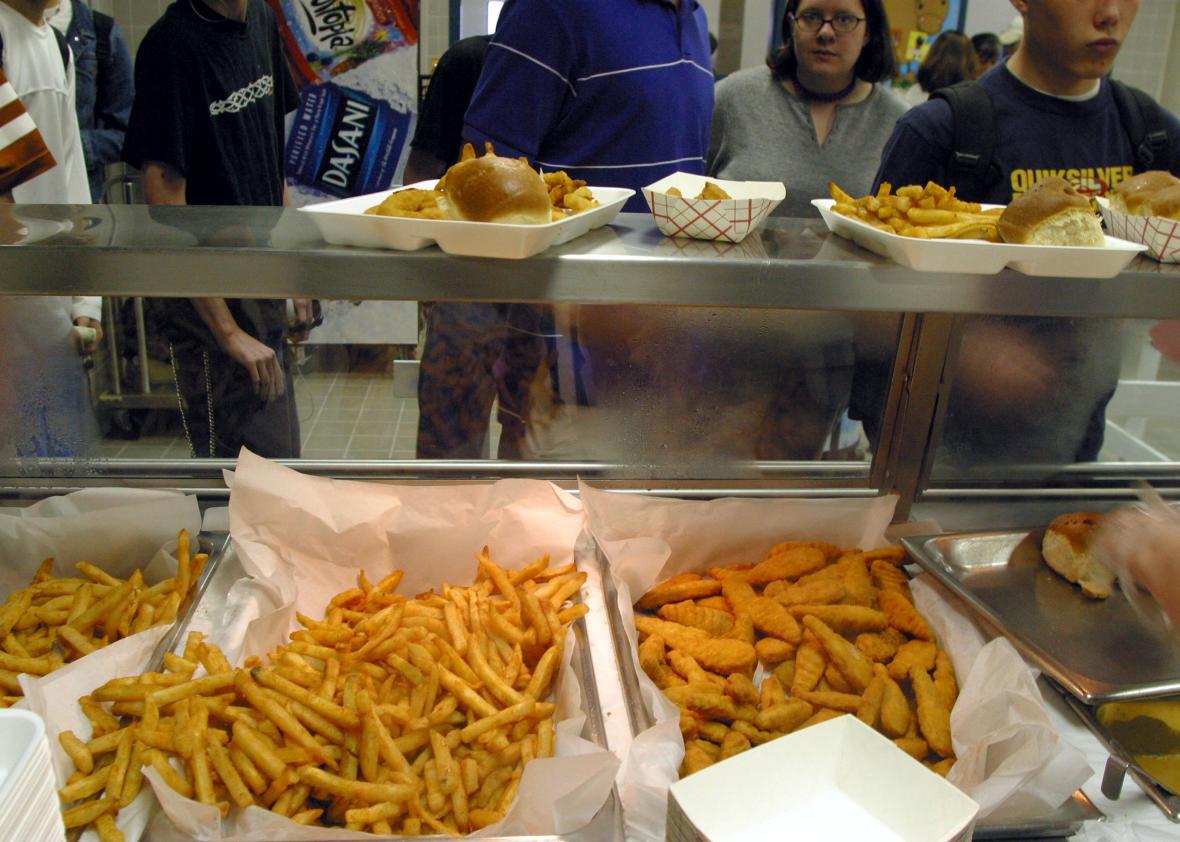The problem with many public-service campaigns aimed at young people is that they are based on lies. Not all users are losers, and drug dealers do not tend to be dorks. Driving fast is actually very fun. And smoking is not lame; in fact, it is cool.
That’s why a new study on nutrition messaging for teenagers, published in the Proceedings of the National Academy of Sciences, is so exciting. In the study of more than 500 13- and 14-year-olds in Texas, researchers framed healthy eating not as something objectively hip—don’t even try, olds—but as a rebellion against manipulative junk-food corporations. As it turns out, appealing to teen appetites for independence and social justice actually works.
The researchers note that many previous health interventions have focused on the long-term future benefits of healthy eating. Don’t smoke, because in a few decades your skin will look awful. Eat healthy, because over time you’ll keep your weight down. Those messages aren’t incorrect, of course, but they’re no match for the immediate appeal of a cigarette or a delicious Doritos® Cheesy Gordita Crunch Supreme.
The new study tried something much savvier. The researchers, headed by Christopher Bryan of the University of Chicago and David Yeager of the University of Texas at Austin, started with an entire eighth-grade class at a suburban Texas middle school. They randomly assigned some of the teenagers to receive a typical public-health pitch on nutrition, while others received no intervention at all. A third group got the new pitch. They read an exposé-style article on how the food industry uses lies and manipulation to make their products addictive. They saw pictures of several industry executives and consultants, who were described as “controlling, hypocritical adult[s].” And they read about how these companies target both children and poor people.
Just like that, eating fresh, unprocessed food becomes an act of rebellion. Health-conscious eaters become not calorie-counting kill-joys, but warriors in a noble, anti-corporate cause. Spurning a Creamy Mayo Double Cheeseburger is not just a boring act of self-control, but a middle finger to the man. Presented with snack choices days later in an unrelated context, teenagers exposed to the intervention chose healthier snacks than their peers. They were also angrier when they saw ads for sugary drinks, and less tempted to drink them.
Compare that to another recent nutrition program aimed at teenagers: “Get Fruved,” a $4.9 million project that “uses peer interaction, social media and campus events to try to get high school and college students to eat more fruits and vegetables, exercise more and manage stress more effectively.” Oh, and “get fruved” means “get your fruits and vegetables,” which is a cool thing that cool teens say when they are hanging out together and getting fruved. “Get Fruved” is the “Users Are Losers” of nutrition campaigns.
The new study, by contrast, suggests an approach similar to Truth, a national anti-smoking campaign that launched in the late 1990s. Instead of trying to convince teenagers that smoking is unglamorous or unhealthy, the campaign emphasized the fact that lame adults want you to smoke. In one spot, young protesters pile body bags outside an unnamed tobacco company’s corporate headquarters, in a representation of how many people tobacco kills every day. One protester shouts through a megaphone at suit-wearing executives peering out of windows. If a new approach to nutrition messaging could make a Big Tobacco-esque villain out of “Big Food,” it would be a huge victory for public health. And it would have the convenient advantage of being true.
